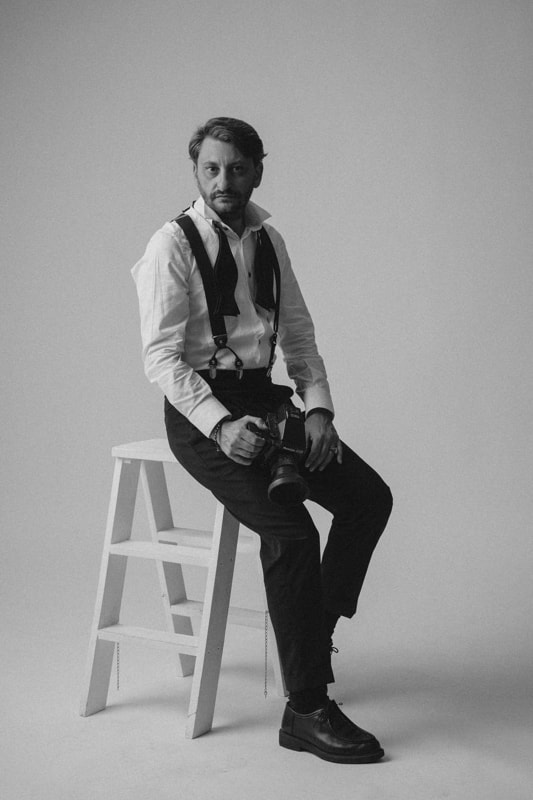
My name is Luciano Potenza and, for more than a decade now, I have been tiptoeing briefly into the lives of people who choose to promise each other their love forever. I do not consider myself an artist or a photoreporter or even a portraitist: I like to define myself as a storyteller. My camera is the notebook on which I record gestures, silences and glimmers of light, because love, as a great master of the lens reminds us, allows itself to be told only if you listen to it with respect.
My work begins long before the shoot. It starts weeks, sometimes months before, in the moment I meet the bride and groom for the first time. I listen to their story, the details that move them. I ask them to show me the hands they hold each other with, the song they sing in the car when no one can see them, the place where they realized they wanted to spend their lives together. That's how I figure out what are the images that might deserve a stay. A wedding is a public event, but love is a private affair: my job is to protect that delicacy, turning it into tangible memory.
My work begins long before the shoot. It starts weeks, sometimes months before, in the moment I meet the bride and groom for the first time. I listen to their story, the details that move them. I ask them to show me the hands they hold each other with, the song they sing in the car when no one can see them, the place where they realized they wanted to spend their lives together. That's how I figure out what are the images that might deserve a stay. A wedding is a public event, but love is a private affair: my job is to protect that delicacy, turning it into tangible memory.
I learned a lot by listening again to an interview of Letizia Battaglia, who I already mentioned: the idea of responsibility to the people portrayed, the sense of kindness that turns photography into an act of care is what I believe in and what I carry with me during every wedding. When I shoot I always think that a look, a hug, may become, 20 years from now, the emotional legacy of a family. That is why I leave room for the unexpected, breathe in other people's time, and move without pre-made poses: I want my photographs to express reality.
At the end of the day, when I return home, the quieter part of my work begins. I review each frame, select carefully, highlight discreetly. I never add what is not there, I rather do not consider what is distracting. The post-production process is an act of respect for the story I have collected and wish to tell, because delivering a collection of photos means giving back, to those who have chosen and trusted me, the time they have lived, making it available for those who were not there and for those who, one day, will want to remember.
If I had to sum up my work, I would say that I photograph what remains when everything fades away. I do it with humility, curiosity, and an inexhaustible gratitude to those who allow me to witness that moment.
